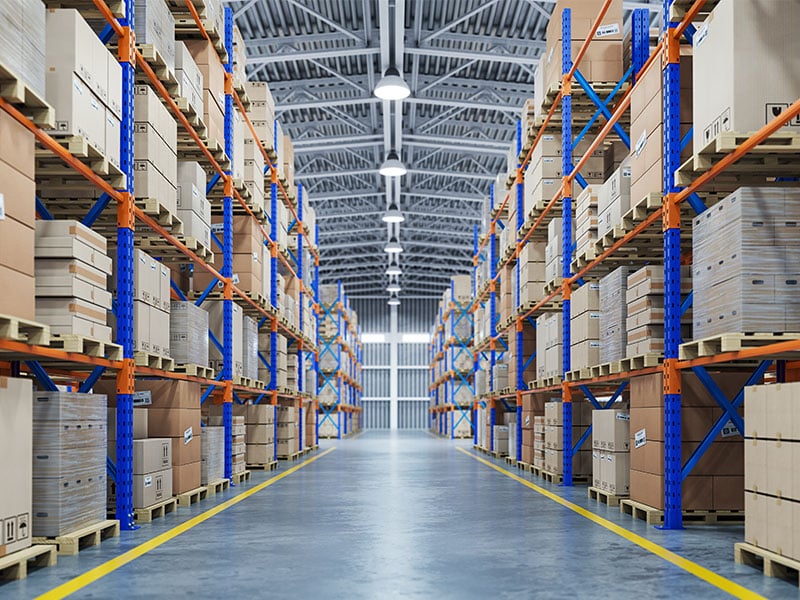
Nagpur, often referred to as the “Orange City” of India, is not just famous for its citrus produce but has also emerged as a strategic hub for warehousing and logistics in recent years. Located in the heart of India, Nagpur’s geographical advantages, infrastructure development, and business-friendly environment have positioned it as a pivotal destination for warehousing activities. In this article, we will explore the burgeoning warehousing in Nagpur and its significance for businesses looking to expand their operations in central India.
The Geographic Advantage:
Strategic Location and Connectivity
Nagpur’s location plays a crucial role in its emergence as a warehouse hotspot. Situated in the central part of India, Nagpur serves as a natural logistics junction connecting major cities across the country. It is well-connected by road, rail, and air, making it an ideal choice for businesses looking to streamline their distribution network.
The city’s proximity to major industrial and consumption centers, including Mumbai, Pune, Hyderabad, and Bengaluru, positions it as a strategic midpoint for warehousing in India. Goods can easily be transported to these key markets, reducing transit time and costs.
Infrastructure Development:
Nagpur-Mumbai Expressway
One of the game-changers for Nagpur’s warehousing sector has been the completion of the Nagpur-Mumbai Expressway, also known as the Maharashtra Samruddhi Mahamarg. This 701-kilometer-long, six-lane superhighway has significantly reduced transportation time between Nagpur and Mumbai, the financial capital of India. It has not only facilitated the movement of goods but also led to increased investments in logistics and warehousing infrastructure along its route.
Multi-Modal International Cargo Hub and Airport (MIHAN)
Nagpur’s Multi-Modal International Cargo Hub and Airport (MIHAN) is another critical infrastructure development that has bolstered the warehousing sector. MIHAN is India’s first integrated airport and cargo hub with a Free Trade and Warehousing Zone (FTWZ). It offers state-of-the-art facilities for warehousing, including customs clearance, cold storage, and bonded warehousing, making it an attractive destination for businesses engaged in international trade.
Economic Growth and Business Opportunities:
Industrial Growth in the Region
The emergence of Nagpur as an industrial and manufacturing hub has further fueled the demand for warehouses in Nagpur. Industries like automotive, textile, cement, and food processing have seen significant growth in the region. These industries require efficient storage and distribution solutions, and Nagpur’s warehousing facilities are well-equipped to cater to their needs.
E-commerce and Retail Boom
The rise of e-commerce and the expansion of retail chains have generated a surge in warehousing requirements. Nagpur’s strategic location and infrastructure make it an ideal choice for e-commerce companies and retailers looking to establish fulfillment centers and distribution hubs. This has led to an influx of investment in the warehousing sector.
Business-Friendly Policies:
The Maharashtra government has introduced several policies and incentives to promote warehousing and logistics in the state. The Ease of Doing Business initiatives, coupled with a simplified regulatory environment, have made it easier for businesses to set up and operate warehouses in Nagpur. This has attracted both domestic and international players to invest in the city’s warehousing sector.
Challenges and Solutions:
While Nagpur presents immense opportunities for warehousing, it also faces challenges that need to be addressed for sustained growth. Some of these challenges include:
1. Infrastructure Maintenance: The rapid growth of warehousing facilities in Nagpur necessitates continuous investment in infrastructure maintenance and development to ensure smooth operations.
2. Skilled Workforce: To meet the demands of the warehousing sector, there is a need for a skilled workforce. Training and development programs can bridge this gap.
3. Environmental Sustainability: As warehousing expands, environmental concerns such as increased traffic congestion and pollution need to be managed through sustainable practices and technology adoption.
Conclusion:
Nagpur’s transformation into a warehousing powerhouse is a testament to its strategic location, robust infrastructure, and pro-business environment. As the warehousing sector continues to grow, it offers a plethora of opportunities for businesses to optimize their supply chains and expand their market reach. With the right investments, policies, and sustainability initiatives, Nagpur is poised to play an increasingly vital role in India’s logistics and warehousing landscape. Businesses that recognize the potential of Nagpur as a warehousing hub are well-positioned to thrive in the heart of India’s economic growth story.
Also Read: Warehousing in Lucknow: A Growing Hub for Logistic Excellence